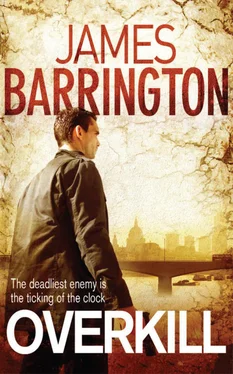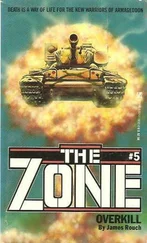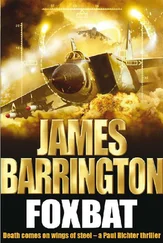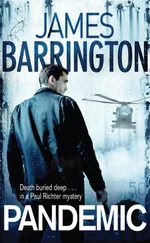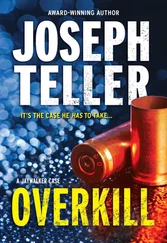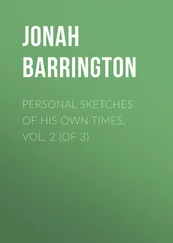Seconds later, he heard the noise of the restroom door opening, followed by heavy footsteps. The man stopped just inside the room and Richter knew he was looking at the closed stall doors, and was probably down on his knees peering underneath them. After that, the Russian had only one option, and five seconds later he took it.
Richter heard the crash as the first stall door smashed open, then the second and the third. Timing is everything. To kick down a door, the attacker must obviously be standing on only one leg, and a man on one leg is by any definition unbalanced. In the split second before the Russian’s right foot connected with the lavatory door, Richter stepped off the seat, pulled the door open and simultaneously launched himself forward, left arm reaching downwards.
The kick that hadn’t connected had spun the Russian round on his left leg. Richter’s hand hooked neatly under the Russian’s right calf and he pulled up and backwards, a basic Aikido move that used the opponent’s own momentum against him. The Russian lurched sideways, toppled against the side of the lavatory stall and then fell heavily, legs splayed wide apart. As the man hit the floor, Richter kicked sideways with his left foot, catching the Russian’s right arm at the wrist, sending the small black automatic pistol spinning under the wall of the adjacent stall. Then he smashed his fist, hard, into the left side of the Russian’s neck, and then it was all over.
Richter pulled the unconscious Russian out of the stall and propped his body against the restroom wall. He reached into the man’s inside jacket pocket and extracted a black leather wallet, which he opened. One of the items inside caused him to nod in satisfaction. He replaced the wallet, retrieved his briefcase and extracted the bottle of scotch. Richter cracked open the top, poured the liquor liberally over the front of the Russian’s jacket, then placed the bottle by the unconscious man’s right hand.
The pistol was a Russian 5.45mm PSM, light and easily concealed. Richter took a handkerchief out of his pocket, picked up the pistol and dropped it into the paper towel waste bin beside the row of sinks. He’d just picked up his briefcase when the restroom door opened and a man walked in. He looked at Richter, then at the figure slumped against the wall.
‘Another drunk,’ Richter said, in colloquial Russian, walking towards the door.
The man sniffed, then nodded. ‘Sometimes you can’t walk round Red Square without tripping over them,’ he replied.
Richter nodded agreement, opened the restroom door and headed for the departure gate.
Friday
Stepney, London
The telephone woke Richter at seven forty. ‘Yes?’ he muttered.
‘Go secure, please.’
‘Right,’ Richter said, reaching for the telephone base unit and pressing the button. To anyone listening in, it would sound as if both had disconnected.
‘Thomas, Duty Officer. How did it go?’
‘Fairly well,’ Richter said. ‘The First Secretary’s a bit of a prick, but the Fourth Under-Secretary, a chap named Erroll, is pretty switched on. The car was a mess, and so was the body. The head was crushed beyond recognition, and the hands and arms were badly burnt. The Embassy identified the body by documentation only.’ Richter paused and yawned. The voice in the earpiece squawked at him. ‘What?’
‘I said, was there was any doubt about the identity of the body?’
‘No, none at all.’
‘Poor old Newman. A pretty futile way to go. He was—’
‘Not really,’ Richter interrupted. ‘You misunderstood me. The identification was conclusive, but only because the body definitely wasn’t Newman.’
‘What?’ Thomas said. ‘Are you sure?’
‘I wouldn’t say it if I wasn’t certain.’
There was a short pause, the faint sound of background voices, and then the phone crackled again. ‘Simpson wants to see you – now. I’ll send a car.’
‘Give me an hour,’ Richter replied. ‘I’m still in bed.’
‘Best you get up quickly, then,’ Thomas said, his grin apparent even on the scrambled line, ‘because the car will be outside your building in about twenty minutes. Come straight up to the Director’s office when you get here.’
Richter unscrambled, listened for the dialling tone and replaced the receiver. He glanced at his watch – almost seven fifty – then looked round the bedroom. As usual, it looked as if a bomb had hit it, the bed having apparently been the focal point of the explosion. Richter dragged the sheets and blankets into some sort of order, made a mental note to buy a duvet, and soon, and headed for the bathroom.
ulitsa Novyj Arbat, Moscow
The apartment at the western end of ulitsa Novyj Arbat was small by Western standards, with a floor area of barely one hundred square metres, but for Moscow it was considered vast, particularly for a single occupant. Most Muscovite families thought themselves lucky if they lived in three- or four-roomed flats half that size. Russians are used to cramped living conditions, parents and children routinely sharing bedrooms, bathrooms and kitchens.
Like most of the other larger properties in this district of Moscow, the apartment was owned by the Russian government and had been allocated to the Ministry of Industrial Production. The Ministry, in turn, had allocated the apartment as the Moscow residence of the Minister himself. Dmitri Stepanovich Trushenko sat comfortably in a leather armchair, his long legs stretched out towards the fireplace, where coals and logs were already arranged. His manservant would light the fire early in the evening, before preparing and serving the Minister’s dinner. Trushenko was tall and slim, with fair skin and blond hair, and a friendly and somewhat vacant smile that concealed an excellent brain. He looked much younger than his fifty-six years, and his faintly academic air sometimes misled opponents into underestimating his cunning and his keen instinct for political and personal survival.
On the low table beside Trushenko were two slim and highly classified files, neither of which had reached him in his official ministerial capacity. One was the report of the interrogation of the Englishman in the Lubyanka, including the audio transcript and the conclusions of the interrogator. This had been accompanied by an entirely unmarked video tape, which Trushenko had already watched twice with a keen personal pleasure.
The second file had originated in the Russian Ministry of Defence and contained a faxed report prepared by the colonel in charge of the Voyska IA-PVO Unit in the Arkhangel’sk Military District, which detailed the over-flight of the Confederation of Independent States by the American spy-plane the day before. The report contained comparatively brief details of the route the Blackbird had taken, but glowing accounts of the prompt and efficient actions taken by PVO officers which, the report stated, had certainly prevented the American aircraft from following its intended surveillance route.
The colonel’s report also stated that he believed the spy-plane had been damaged, possibly badly, during its encounters with the Russian interceptors, and suggested that the aircraft had probably not succeeded in reaching safety in the West. Blame for the escape of the spy-plane from Russian airspace was directed squarely at the interceptor pilots for their failure to execute the orders issued by the PVO. The report concluded with a note of the proposed disciplinary action that was to be taken against them.
It was this file which Trushenko had just finished reading, with mounting concern. As soon as he had seen the route details, he knew that the conclusions were rubbish, and that the Americans had photographed exactly what they had wanted to photograph. Privately, he was surprised that any of the interceptors had got close enough to the American aircraft to engage it, far less damage it, and he dismissed out of hand the implied suggestion that the Blackbird had crashed into the North Sea. Obviously, the Americans had found out something about the operation, and had flown their spy-plane to investigate the weapon test site.
Читать дальше
